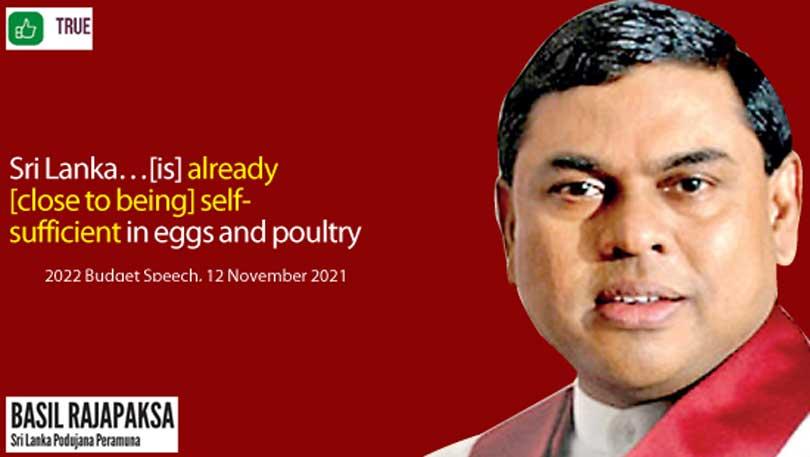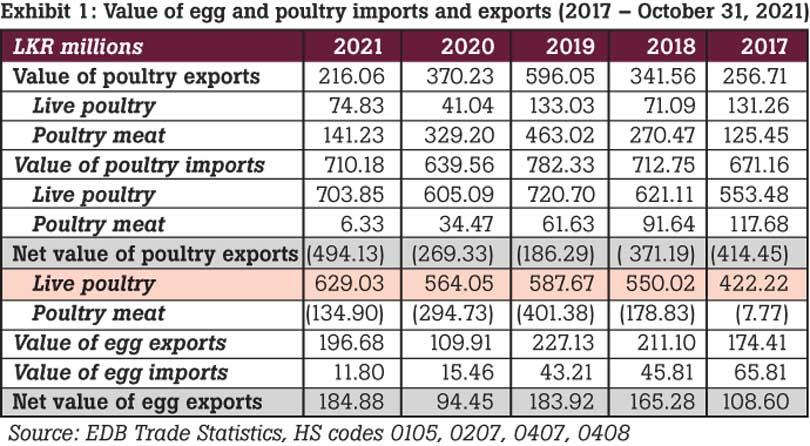09 Dec 2021 - {{hitsCtrl.values.hits}}

 According to the Food and Agricultural Organisation (FAO), “The concept of food self-sufficiency is generally taken to mean the extent to which a country can satisfy its food needs from its own domestic production.” FAO also says that generally net food exporting countries are self-sufficient, and net food importing countries are not.” Therefore, to evaluate the minister’s claim, FactCheck.lk considered net exports as an indicator of self-sufficiency.
According to the Food and Agricultural Organisation (FAO), “The concept of food self-sufficiency is generally taken to mean the extent to which a country can satisfy its food needs from its own domestic production.” FAO also says that generally net food exporting countries are self-sufficient, and net food importing countries are not.” Therefore, to evaluate the minister’s claim, FactCheck.lk considered net exports as an indicator of self-sufficiency.
FactCheck.lk consulted the Export Development Board’s (EDB) trade statistics for 2017 to 2021 and used data from Central Bank of Sri Lanka (CBSL) 2020 Annual Report to compare trade volume with Sri Lanka’s total production.
Poultry trade consisted of two categories: live poultry and poultry meat. EDB data shows that every year from 2017 to 2021, Sri Lanka was a net exporter of eggs and poultry meat, but was a net importer of live poultry, and a net importer of poultry as a whole (live and meat) (See Exhibit 1). This means that Sri Lanka is self-sufficient in eggs and poultry meat, but not in live poultry.
Since the minister said “close to” being self-sufficient, we also checked what percentage of total live poultry production the net imports represented. CBSL data indicates that the net imports of the quantity of live poultry was only 1% to 2.5% of the total quantity of live poultry produced in Sri Lanka each year from 2017 – 2020. Therefore, Sri Lanka is “close to” being self-sufficient in live poultry.
The minister is correct that Sri Lanka has been self-sufficient in eggs and close to being self-sufficient in poultry. Therefore, we classify his statement as TRUE.
**FactCheck.lk’s verdict is based on the most recent information that is publicly accessible. As with every fact check, if new information becomes available, FactCheck.lk will revisit the assessment.

FactCheck is a platform run by Verité Research.
For comments, suggestions and feedback, please visit www.factcheck.lk.
22 Dec 2024 53 minute ago
22 Dec 2024 1 hours ago
22 Dec 2024 4 hours ago
22 Dec 2024 4 hours ago
22 Dec 2024 4 hours ago